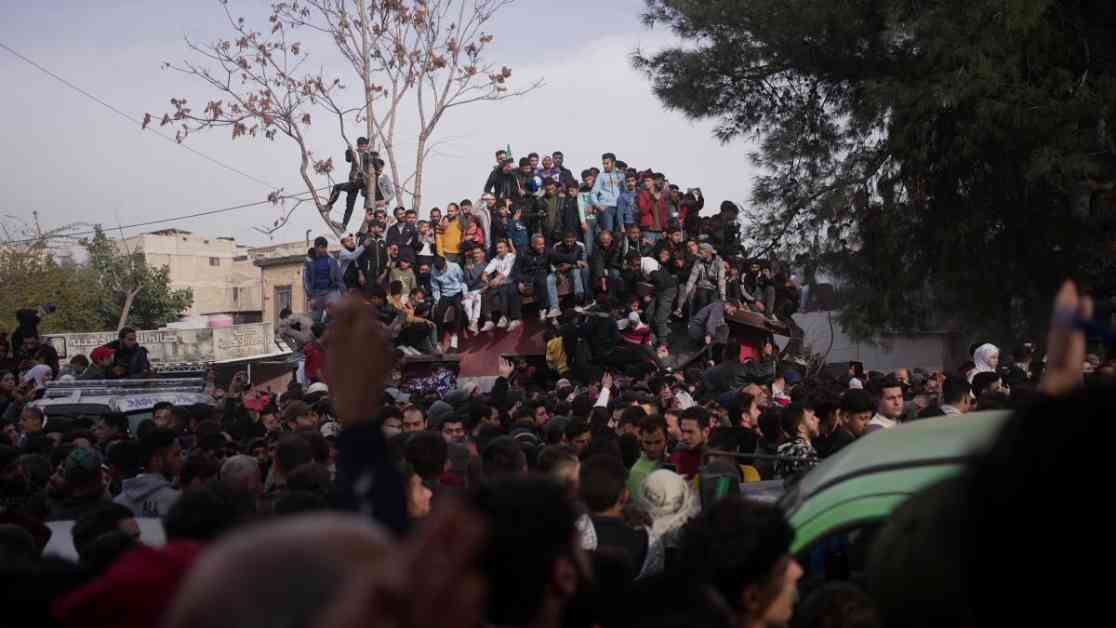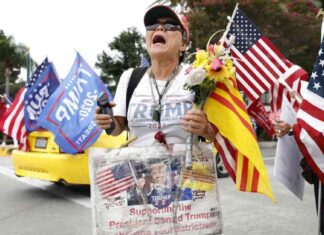Syrian thirst for justice: Massacre, rumored hanging, and revenge
DAMASCUS, Syria — In the heart of Damascus’ Al Ashmar Square, a crowd eagerly gathered, buzzing with anticipation and hope for justice. The atmosphere was charged with emotion as thousands of people cheered, pushed, and positioned themselves for the best view of a rumored hanging. Among the throng, a mother scolded her child to hurry, not wanting to miss the event unfolding before their eyes.
The Hunt for Justice
The main attraction of the day was Saleh al-Ras, a feared enforcer for former Syrian President Bashar Assad, whose reign of terror had recently come to an end after 13 years of civil war. Al-Ras, known as “Syria’s Hitler” in the district of Tadamon, was believed to be responsible for numerous atrocities, including a 2013 massacre that left nearly 300 people dead. The crowd, fueled by a desire for vengeance, eagerly awaited his public execution.
As the minutes turned into hours, the crowd’s excitement waned as Al-Ras failed to make an appearance. The bearded militants in charge reluctantly informed the disappointed onlookers that the hanging had been postponed for two days, sparking a mix of frustration and uncertainty among the crowd. However, when Friday arrived, the news spread like wildfire – there would be no execution after all. The hanging was nothing but a rumor.
Voices from the Ruins
Amidst the rubble of Tadamon, a neighborhood on the outskirts of Damascus, survivors and witnesses shared their harrowing tales of suffering at the hands of Al-Ras and his militia. A woman in her 30s recounted the horrors of rape and murder inflicted upon her relatives, her voice trembling with fear and anger. Next to her, a 62-year-old man echoed her sentiments, describing the brutality and senseless violence that had plagued their community for years.
The search for justice extended beyond the desire for revenge, as residents like Usama Kastana and Fouad Shawakh combed through the remnants of their once-thriving neighborhood, now reduced to a wasteland of destruction and despair. The discovery of mass graves and charred remains served as a grim reminder of the atrocities committed by the former regime, fueling the residents’ determination to uncover the truth about their missing loved ones.
The Quest for Closure
For Walid Al-Abdullah, the quest for justice was deeply personal. The disappearance of 15 family members, including his parents and siblings, left a void in his heart that only the truth could fill. Despite years of unanswered pleas and official requests, he remained resolute in his search for closure, driven by a need to know the fate of his loved ones. As Human Rights Watch called for accountability and preservation of evidence, Al-Abdullah’s hope for answers remained unwavering, a beacon of light in the midst of darkness and uncertainty.
In the midst of chaos and despair, the people of Syria clung to the hope of justice, a beacon of light in the darkness of their war-torn land. As they navigated the complexities of revenge, forgiveness, and healing, their voices echoed the universal cry for truth and closure in the face of unspeakable atrocities. The road to justice may be long and arduous, but for the people of Syria, it is a journey worth taking, a path towards healing and reconciliation in a land scarred by violence and loss.



























